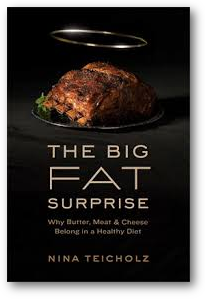 Richard Smith has another fascinating article about the way science has been practised in universities in recent decades, focusing particularly on The Big Fat Surprise, a book about the purported links between diet and health. It's full of quotable stuff; so much so that I barely know where to begin, but this, almost at random, gives a flavour of the thing.
Richard Smith has another fascinating article about the way science has been practised in universities in recent decades, focusing particularly on The Big Fat Surprise, a book about the purported links between diet and health. It's full of quotable stuff; so much so that I barely know where to begin, but this, almost at random, gives a flavour of the thing.
[Ancel Benjamin Keys, a biologist at the University of Minnesota] studied few men and did not have a reliable way of measuring diets, and in the case of the Japanese and Italians he studied them soon after the second world war, when there were food shortages. Keys could have gathered data from many more countries and people (women as well as men) and used more careful methods, but, suggests Teicholz, he found what he wanted to find. A subsequent study by other researchers of 22 countries found little correlation between death rates from heart disease and fat consumption, and these authors suggested that there could be other causes, including tobacco and sugar consumption
Great stuff. The wider point though is how this mirrors stories familiar to BH readers: how challenges to the dodgy science were dealt with
Keys dismissed [the counterhypothesis] as a “mountain of nonsense” and a “discredited tune.”
...how politicians took it in unquestioningly
One congressional staffer, Nick Mottern, wrote a report recommending that fat be reduced from 40% to 30% of energy intake, saturated fat capped at 10%, and carbohydrate increased to 55-60%.
...how corporate interests took advantage:
It might be expected that the powerful US meat and dairy lobbies would oppose these guidelines, and they did, but they couldn’t counter the big food manufacturers such as General Foods, Quaker Oats, Heinz, the National Biscuit Company, and the Corn Products Refining Corporation, which were both more powerful and more subtle.
and how the consequences were less than benign:
The successful attempt to reduce fat in the diet of Americans and others around the world has been a global, uncontrolled experiment, which like all experiments may well have led to bad outcomes. What’s more, it has initiated a further set of uncontrolled global experiments that are continuing.
This all sounds very familiar. What you can see here is yet another example of academic science proving inadequate for informing public policy, serving up results that are half-baked, half-tested, and often already half refuted. When will politicians learn?